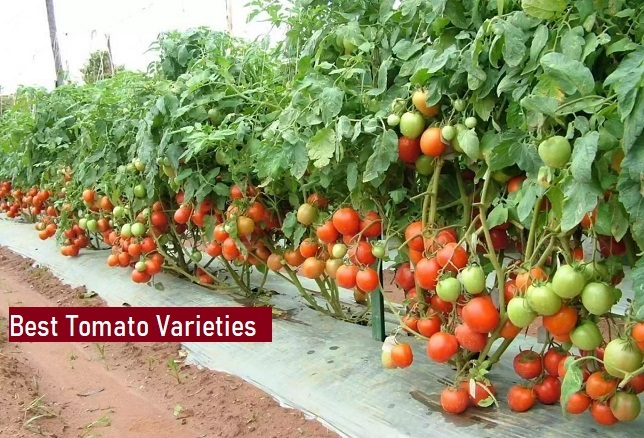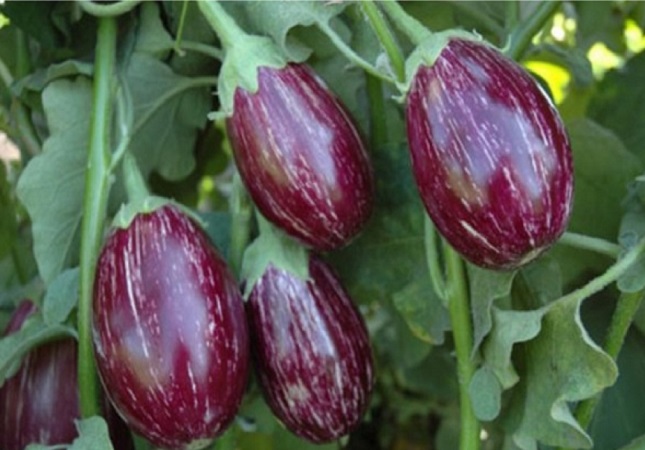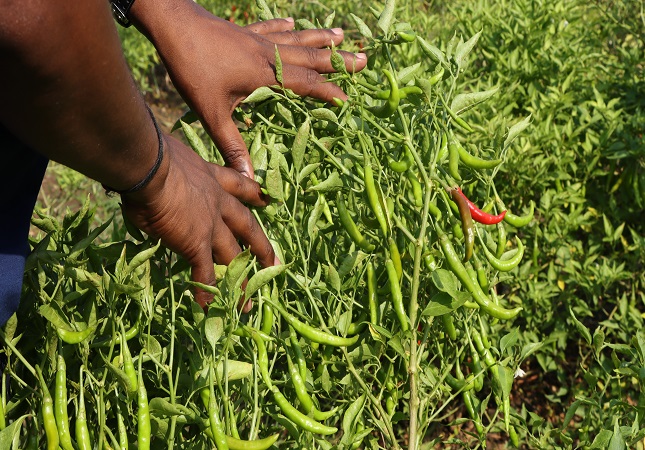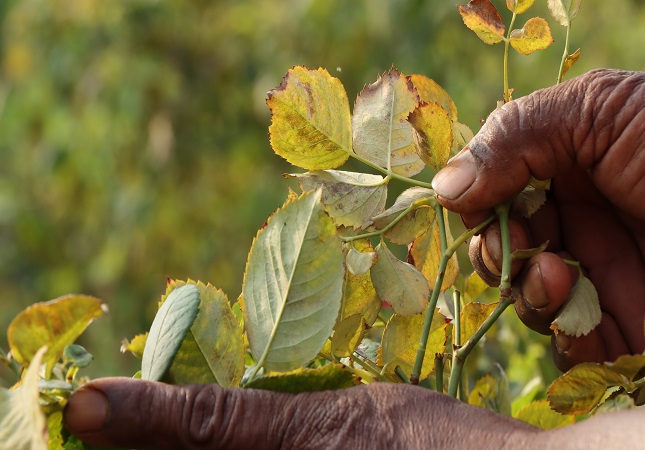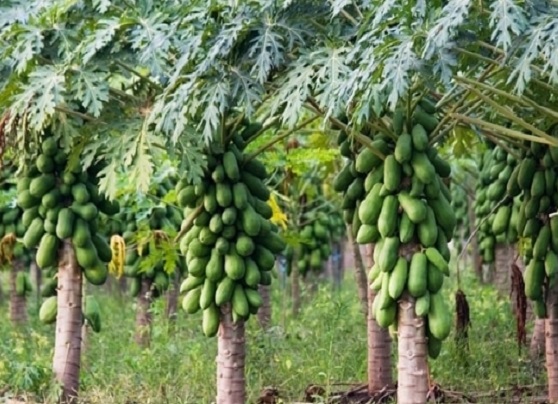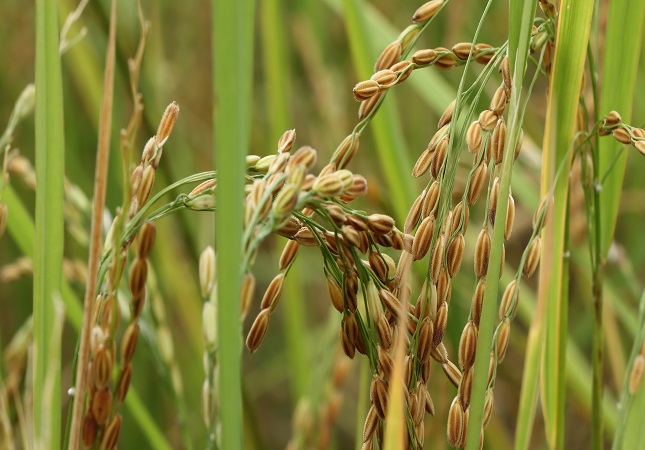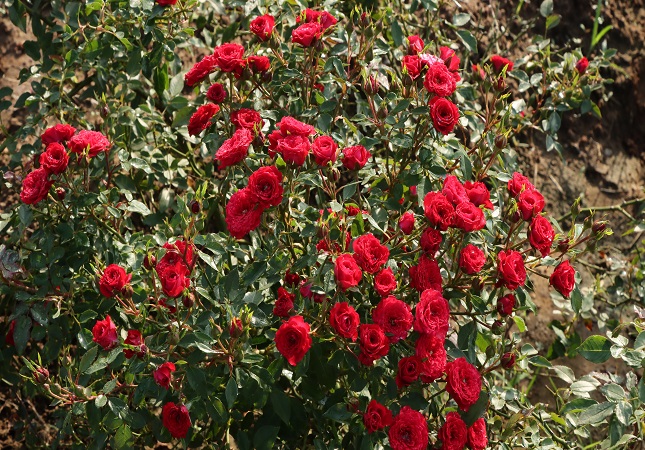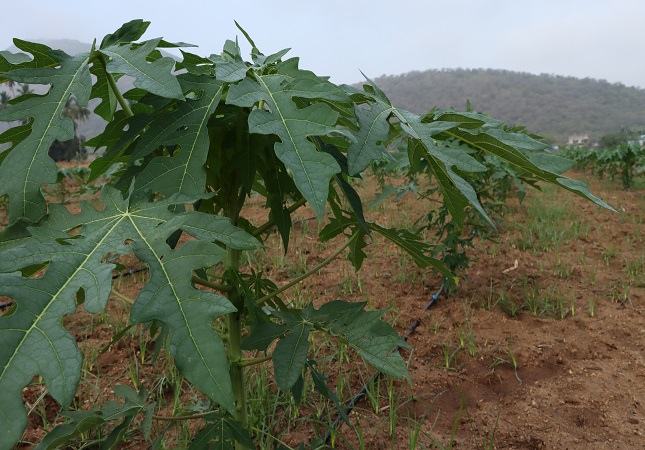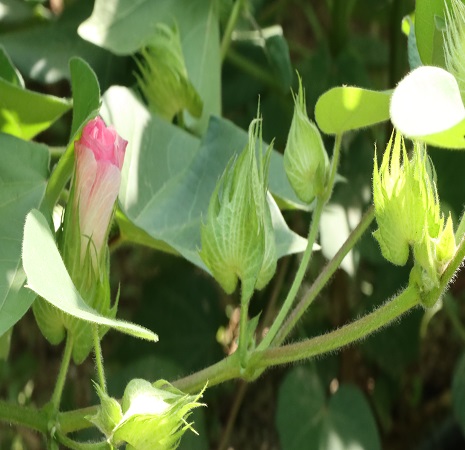The best tomato varieties for cultivation in Tamil Nadu are CO-3, CO-4, Arka Rakshak, Arka Abha, and Pusa Ruby. The ideal seasons for growing tomatoes in Tamil Nadu are the rainy season (June to September) and the winter season (October to February).
Blog
-
Recommended brinjal varieties for cultivation in Tamil Nadu include Arka Navneet, Arka Keshav, Pusa Purple Cluster, Black Beauty, and Nadia. The best seasons for brinjal cultivation in Tamil Nadu are summer (February to May) and early monsoon (June to July).
-
Recommended chili varieties for cultivation in Tamil Nadu include Byadagi, Guntur Sannam, Kashmiri, Ellachipur Sannam, and Arka Lohit. The best season for chili cultivation in Tamil Nadu is generally during the winter months (October to February)
-
Rose plants are susceptible to aphid infestations due to factors such as their attractive sap, lack of natural defenses, high nitrogen content, flowering habit, warm and humid conditions, lack of natural predators, and monoculture practices. Preventive measures and control methods can help manage aphids on rose plants effectively.
-
In Tamil Nadu, popular papaya varieties include Red Lady, Pusa Delicious, Coorg Honeydew, Washington, and Solo Sunrise. The approximate duration from planting to harvest ranges from 7-10 months, depending on the variety.
-
In Tamil Nadu, various paddy (rice) varieties are grown with different durations from planting to harvest. Popular varieties include ADT 36 (140-145 days), ADT 39 (145-150 days), ADT 43 (140-145 days), ADT 45 (135-140 days), ADT 46 (135-140 days), TKM 13 (130-135 days), CO 43 (125-130 days), ASD 16 (120-125 days), CR 1009 (115-120 days), ADT 47 (110-115 days), CO 51 (105-110 days), and BPT 5204 (100-105 days). The durations can vary due to factors like weather, farming practices, and specific agro-ecological zones. Farmers choose these varieties based on factors such as adaptability, yield potential, and disease resistance.
-
Floriculture in Tamil Nadu thrives in areas like Hosur, Krishnagiri, Coimbatore, Dindigul, Nilgiris, and Chennai. The state's favorable climate and skilled labor contribute to its flourishing floriculture industry. Tamil Nadu is known for cultivating a wide range of flowers such as roses, carnations, gerberas, jasmine, and orchids. These flowers cater to both local and international markets, making floriculture a promising and profitable sector in the state.
-
Some agricultural crops and practices in Tamil Nadu that can yield high profits and good returns include horticulture (fruits, vegetables, spices), floriculture, organic farming, aquaculture, sericulture, hybrid and high-yielding varieties of staple crops, and agroforestry.
-
Micronutrients improve crop yields by supporting enzyme activation, chlorophyll synthesis, nutrient transport, stress tolerance, and reproductive development.
-
To cultivate cotton in Tamil Nadu, select suitable varieties, prepare the land, sow quality seeds at the right time, provide adequate irrigation, manage nutrients, control weeds, monitor and manage pests and diseases, harvest when bolls are mature, and store the cotton properly. Seek guidance from local experts and adapt these steps to your specific conditions for successful cotton cultivation in Tamil Nadu.

